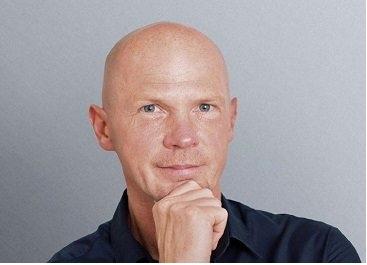As the year nears its end, it’s time for a look back at 2023 …

My university job
Summa cum Fraude
In 2023, a project funded by the German Research Foundation (DFG) entitled Summa cum Fraude ended, which was dedicated to the question of how journals/publishers react to reports of obviously faked/erroneous publications – usually, soberingly, not at all. I would like to quote from the abstract of the last publication from Summa cum Fraude: “Despite evident manipulations, journals responded with article retractions in only 15 % of the reported cases. In parallel interviews, experts made improvement suggestions, but mostly failed to address the apparent issue of journals’ inaction. According to the authors, transparency in handling reports and implementing sanctions for inactivity are necessary to counter the passivity of journals in combating scientific misconduct.”
This was although respected publishers such as the American Chemical Society, Elsevier, Nature, Wiley, Springer and the Royal Society of Chemistry were responsible for the journals. However, it turned out that it was not so much the publisher as the editor-in-chief who was decisive in the handling of fake publications. The time spans for retractions or at least corrigenda are also worrying and sometimes exceed 5 years.
I really enjoyed working on this project with Anne Holtsch, Frank Müller and Karin Jacobs from the physics department at my university and with my colleague Tamara Köstenbach from the university library. The three physicists did the exciting and burdensome investigative work of reporting and documenting the cases of dubious publications.
What else?
Unfortunately, another proposal (submitted by a different team) for funding from the DFG and Agence National de la Recherche (ANR) was not successful. However, there are plans to further develop and pursue the concept. Apart from that, everyday university life was characterised by increasingly bureaucratic procedures and processes relating to Open Access, so much so that I don’t want to look back on it at the end of the year. And of course, like all those in charge of Open Access in Germany, the DEAL contracts with Wiley, Springer Nature and Elsevier kept me busy – more on this in a few days. However, there were also some very pleasing things: I was able to intensify my contact with my university counterpart at the University of Lorraine again and through him also got into more intensive dialogue with my colleague from the University of Luxembourg. The work of the Working Group Scientific Publication System of the Alliance of Science Organizations in Germany came to an end, but I am happy to be member of a sort of succeeding Interest Group Advancement of Scientific Publishing of the focus initiative Alliance of Science Organizations in Germany, I was once again nominated by the German Rectors’ Conference (Hochschulrektorenkonferenz, HRK).
Consulting
When it comes to consulting, our company scidecode was incredibly successful this year:
- Some 16 months after the Thu Sep 23rd, 2021 kick-off meeting for the „Risks and Trust in pursuit of a well-functioning Persistent Identifier infrastructure for research“ project commissioned by Knowledge Exchange all the results were published in February, this includes the report („Building the plane as we fly it: the promise of Persistent Identifiers“) and seven case studies on author IDs, organisational IDs, PIDs for research instruments and facilities, IGSNs, RePEc IDs, failed PIDs and the role of research funders in the consolidation of the PID landscape.
- From January to June, we worked on a study on open access in the social sciences, which was intended solely for the client and was therefore not published.
- In fall we submitted a successful bid in response to the ITT that cOAlition S put out in July for conducting a study to assess the impact of Plan S, work on this is still ongoing.
Freelancing & Misc.
Apart from my employment at the university and my entrepreneurship at scidecode, I conducted workshops on science communication for the University of Applied Sciences Münster, the Protestant University of Applied Sciences Freiburg, the doctoral programme of the University of Duisburg-Essen and the University of Applied Sciences Hamburg. I also worked for the University of Applied Sciences Grisons (Switzerland) as a reviewer for master theses.
Publications and presentations
For me, a retrospective of a year is always also a look back at publications and presentations. There were the following publications:
- the aforementioned publication together with Anne Holtsch, Frank Müller, Karin and Tamara Köstenbach on Summa cum Fraude,
- a publication from the consulting project for Knowledge Exchange by Pablo de Castro, Laura Rothfritz, Joachim Schöpfel and me,
- two publications for the volume Grundlagen der Informationswissenschaft, one on “Verfahren der wissenschaftlichen Qualitäts-/Relevanzsicherung/ Evaluierung“ and one that provides a review on the current state of Open Access (the latter one was a written together with Heinz Pampel)
- And of course we at scidecode produced the report “Building the plane as we fly it: the promise of Persistent Identifiers” and seven more case studies on PIDs, all these publications are listed here.
There were also some presentations I delivered in 2023 (although by far not as much as in the years before the Corona pandemic), especially two related to the scidecode project on Persistent Identifiers and one (together with Tamara Köstenbach) related to Summa cum Fraude. The latter one discussed the possible contributions libraries could make to safeguarding scientific integrity and it was given at the BiblioCon 2023 (formerly known as German Librarians’ Day). Why am I highlighting this lecture? Despite all the worrying findings on quality management of scientific journals outlined above, a key point emphasised in social media was that we were using a definition of scientific integrity produced by ChatGPT. Perhaps an indication of the importance librarians put on AI in the next years.

Graduate sociologist, information scientist (PhD degree), associate of scidecode science consulting – De Castro, Herb, Rothfritz GbR, working for the Saarland University and State Library (Germany)